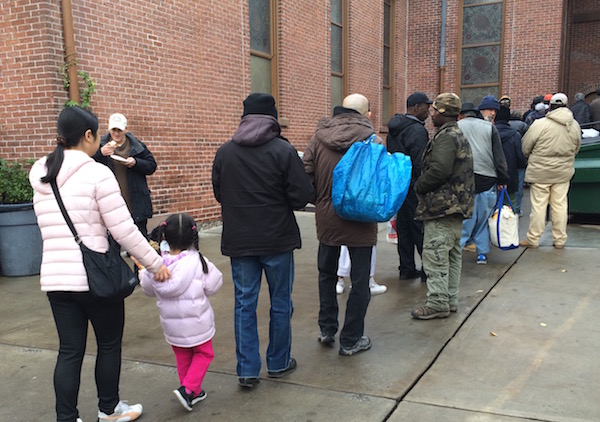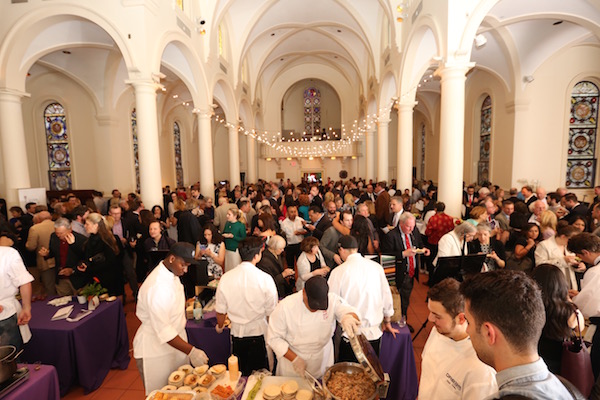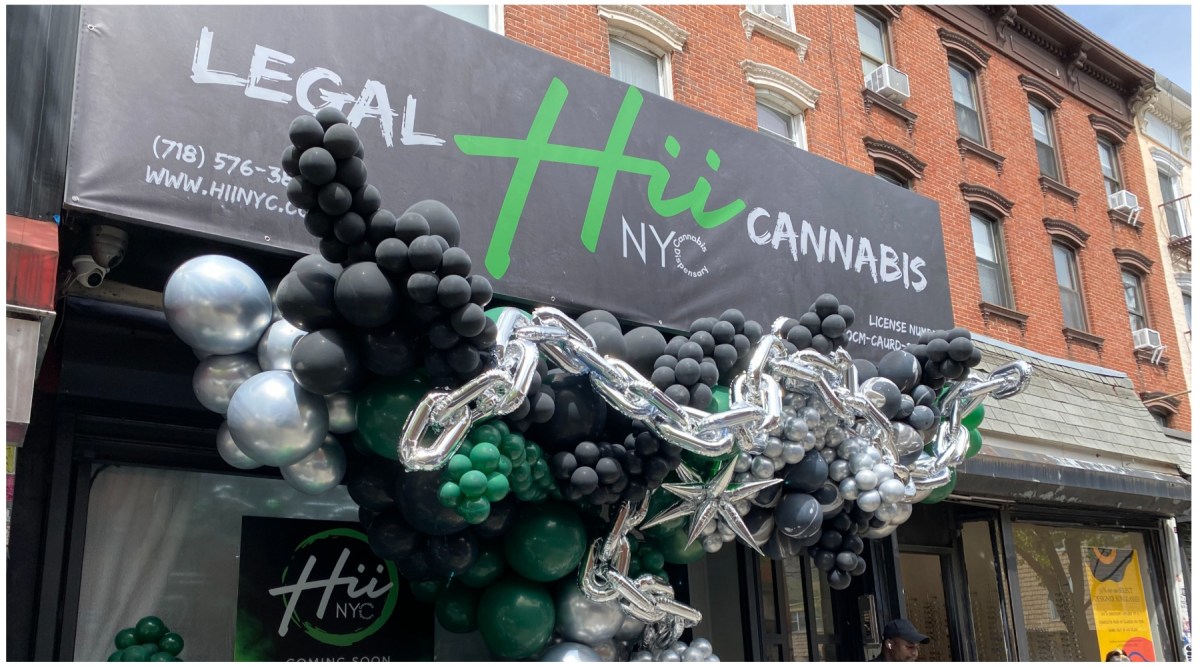
BY DUSICA SUE MALESEVIC | Holy Apostles Soup Kitchen — the largest soup kitchen in the city and the second largest in the country — could lose federal funding if proposed Trump administration budget cuts go through.
The Trump administration is asking Congress to cut about $18 billion from “discretionary spending bills for the current fiscal year that have been long settled,” Politico reported on March 28.
If Congress approves the cuts, the Emergency Food and Shelter Program’s budget could be reduced by $20 million, according to Hunger Free America. After Politico reported the cuts, an Excel spreadsheet outlining them was forwarded to the nonprofit organization, Magen Allen, a spokesperson for Hunger Free America, said in an email.
The program, which is administered by the Federal Emergency Management Program (FEMA), provides funding for food banks and pantries, soup kitchens, and homeless prevention programs, said Joel Berg, CEO of Hunger Free America, said in a phone interview.
Berg called the cut “cruel” and “historically bad,” and noted it is unusual to take away money that has already been appropriated. The result of the proposed cut is that “more people are going to be turned away. More people are going to go hungry,” he said. “The idea that these [organizations] will find donations in the private sector is crazy. There is no magic bullet for replacing federal money.”
Berg said programs like Holy Apostles Soup Kitchen would “get slammed.”
“This is an assault on the working poor, the food-insecure, seniors, and women and children. This could be devastating,” said Michael Ottley, the director of operations for the soup kitchen (296 Ninth Ave., at W. 28 St.).
Through the federal Emergency Food and Shelter Program, Holy Apostles Soup Kitchen has received about $23,000 annually for several years. According to Ottley, the soup kitchen serves 300,000 meals a year — so that money goes to about 4 percent of that total (or 11,780 of meals served), Ottley said. The total operating cost/budget to run Holy Apostles’ feeding program and other services is $2.9 million a year, Ottley noted.
“Of course every bit helps,” he said in a phone interview. “The jury’s still out. There’s definitely going to be a reduction. Yes, there’s going to be cuts — but to what extent, who knows? I’m worried.”
The city receives on average about $4 million annually from the federal program, according to Ottley and the United Way of New York City, the administrator of the program. The city’s Human Resources Administration (HRA) is a grant recipient and fiscal conduit supporting over 30 emergency food providers, a United Way of New York City spokesperson said in an email.
Federal funding does not pass through the city’s budget and the HRA does not administer the Emergency Food and Shelter Program funding, Lourdes Centeno, press secretary for HRA, said in an email. The grants go directly to emergency food programs that apply to the United Way of New York City, and the HRA receives a small allocation from the grant — this year it was $100,000 — which is used to buy additional food, Centeno said.
In 2011, the Emergency Food and Shelter Program’s annual funding was cut by 40 percent from $200 million to $120 million, and has remained flat since then, according to the United Way spokesperson. United Way of New York City’s current allotment is a little over $4.3 million.
“While we are confident that New York City will continue to receive funding from the Emergency Food and Shelter Program, this will decrease as a result of proposed federal budget cuts,” Nicole Gallant, senior vice president and chief impact officer of United Way of New York City, said in an email statement. “This reduced funding significantly limits our ability to assist New Yorkers with food, utilities and rent assistance — vital crisis supports that are needed in order to help New Yorkers on a path to stability and self-sufficiency.”
Cuts to other programs and providers, which add to what the Holy Apostles Soup Kitchen does, will also affect how the organization operates, Ottley said. He pointed out it could increase the population the soup kitchen serves with potentially less funding to do so.
Currently, the city is working on its budget for fiscal year 2018. Holy Apostles Soup Kitchen also receives $62,000 a year from the city’s Emergency Food Assistance Program, Ottley said. Freddi Goldstein, deputy press secretary for the mayor’s office, said a clearer picture of funding for that program should emerge at the end of this month when Mayor Bill de Blasio releases his executive budget. The city will “vehemently fight any cuts” at the federal level, she said by phone. “We are fighting any dollar they propose to cut.”
City Councilmember Corey Johnson’s office declined to comment.
Ottley said he had been considering adding a Saturday meal service that would include providing brown-bag lunches, but the funding uncertainty is giving him pause. “It’s a challenging time for us,” he said. “It’s scary out there for a lot of reasons.”
Ottley said he hopes Holy Apostles can be a sanctuary, a place to provide hope during these times. A major event for the soup kitchen is Farm to Tray, an annual sustainable evening food and wine benefit, that will take place on May 18, he said. Also, TheEdwardMorganBallet will be performing at the church April 21–23 with proceeds going to the soup kitchen (visit edwardmorganballet.org for more info). For more info about Farm to Tray, visit farmtotray.org.


















